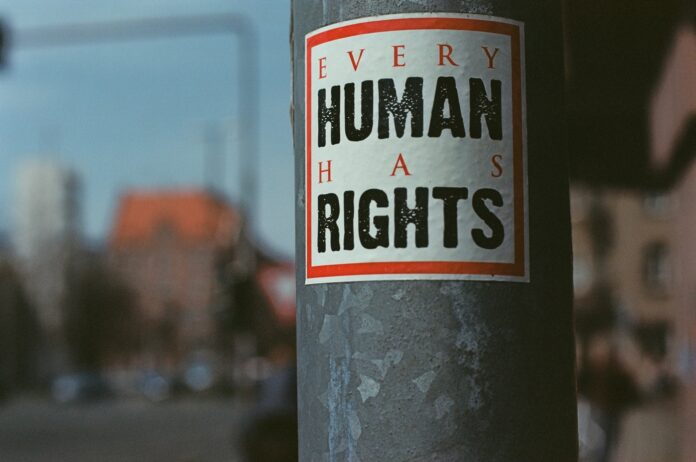Human rights are fundamental rights and freedoms that are inherent to all human beings, regardless of race, color, sex, language, religion, nationality, or any other characteristic. These rights are based on the principles of dignity, equality, and respect for every individual. Human rights are considered universal, inalienable, and indivisible, meaning they apply to every person without exception, cannot be taken away, and are interconnected. The concept of human rights is deeply rooted in history, philosophy, and various legal frameworks, and it serves as a cornerstone for promoting a just, fair, and equitable society.
The origins of human rights can be traced back to ancient civilizations and philosophical schools of thought, where thinkers and leaders recognized the inherent value of every individual. However, it was only in the aftermath of World War II that the modern human rights movement gained significant momentum. The horrors of the Holocaust and other atrocities committed during the war led to the adoption of the Universal Declaration of Human Rights (UDHR) by the United Nations General Assembly in 1948. The UDHR is a milestone document that proclaims the inalienable rights to which all human beings are entitled.
The concept of human rights revolves around the understanding that each individual possesses a set of inherent rights and freedoms that should be protected and upheld by society and its institutions. These rights encompass civil, political, economic, social, and cultural dimensions. Civil and political rights include the right to life, liberty, and security of person, freedom of speech and expression, and the right to participate in the governance of one’s country. Economic, social, and cultural rights entail the right to work, education, healthcare, and a standard of living adequate for well-being. Additionally, there are collective rights, such as the right to self-determination for certain groups, including indigenous peoples.
Human rights are safeguarded by various international and regional legal instruments, treaties, and conventions. The United Nations, through its Human Rights Council, plays a central role in monitoring and promoting the respect for human rights worldwide. Other international bodies and organizations, such as the International Labour Organization (ILO) and the World Health Organization (WHO), also contribute to the protection and promotion of specific rights related to labor and health, respectively.
The recognition and protection of human rights are not only a matter of international law and diplomacy but also a crucial aspect of domestic legal systems. Many countries have incorporated human rights into their constitutions or enacted legislation to ensure that the rights of their citizens are respected and upheld. National human rights institutions and ombudsmen often play a pivotal role in monitoring and addressing human rights violations within a country.
Despite the global commitment to human rights, violations continue to occur in various parts of the world. Discrimination, inequality, violence, and oppression persist, affecting vulnerable and marginalized groups, including women, children, refugees, and LGBTQ+ individuals. Moreover, issues like poverty, human trafficking, racial discrimination, and restrictions on freedom of expression and assembly remain major challenges in the quest for a world where human rights are fully respected and protected.
In recent years, there has been a growing recognition of the interconnectedness between human rights, sustainable development, and environmental protection. The 2030 Agenda for Sustainable Development, adopted by the United Nations in 2015, integrates human rights principles into its goals and targets, emphasizing the importance of leaving no one behind and ensuring inclusive and equitable development for all.
The promotion and protection of human rights require the collective efforts of governments, civil society organizations, businesses, and individuals. Non-governmental organizations (NGOs) play a crucial role in advocating for human rights, documenting abuses, and providing support to victims. Activists and human rights defenders often face significant risks, including threats, harassment, and violence, in their pursuit of justice and accountability.
Education and awareness-raising are essential components in advancing the human rights agenda. Empowering individuals with knowledge about their rights and responsibilities fosters a culture of respect for human rights at all levels of society. By promoting dialogue and understanding, societies can address the root causes of human rights violations and work towards building more inclusive and tolerant communities.
Human rights are an indispensable aspect of the human experience, ensuring that all individuals are treated with dignity and equality. Rooted in history and philosophy, human rights have evolved into a comprehensive framework encompassing civil, political, economic, social, and cultural dimensions. Despite significant progress in their recognition and protection, challenges persist, and the commitment of the global community remains crucial to achieving a world where human rights are fully respected, protected, and upheld. By embracing the principles of human rights and working collectively, we can strive towards a more just, compassionate, and inclusive world for generations to come.
In the pursuit of upholding human rights, there are several key areas that demand continued attention and action. These include the fight against discrimination in all its forms, the protection of vulnerable and marginalized groups, the promotion of gender equality, the eradication of poverty, and the need to address emerging challenges posed by technological advancements and climate change.
Discrimination remains a persistent obstacle in the realization of human rights. Whether based on race, ethnicity, religion, gender, sexual orientation, or disability, discrimination undermines the principles of equality and fairness. It is essential to implement robust anti-discrimination laws and policies and to promote inclusive education and awareness to challenge prejudices and stereotypes. Moreover, fostering a diverse and inclusive society can enrich perspectives and strengthen social cohesion, enabling the celebration of humanity’s rich tapestry.
Vulnerable and marginalized groups face heightened risks of human rights violations, often due to their social, economic, or political status. Protecting the rights of women, children, refugees, and internally displaced persons (IDPs), as well as individuals with disabilities, should be a priority. Special attention must be given to addressing the unique challenges faced by these groups and ensuring that their voices are heard and their rights protected.
Promoting gender equality is not only a matter of human rights but also essential for sustainable development and peace. Women and girls continue to face discrimination, violence, and barriers to education and economic opportunities in many parts of the world. Empowering women through gender-responsive policies and legislation, promoting women’s leadership and participation, and challenging harmful gender norms are crucial steps towards achieving true gender equality.
Poverty is both a cause and consequence of human rights violations. Lack of access to basic needs such as food, shelter, healthcare, and education severely limits individuals’ ability to enjoy their human rights fully. Addressing poverty requires a comprehensive approach, including social protection programs, equitable economic policies, and sustainable development initiatives aimed at leaving no one behind.
As technology continues to advance, new challenges to human rights emerge. The digital age brings concerns related to privacy, data protection, and online harassment. It is crucial to strike a balance between harnessing the potential of technology for human rights advancement and safeguarding against its potential abuses. Legislative and policy measures that safeguard individuals’ digital rights and promote digital literacy are essential in this context.
Climate change is another pressing issue with far-reaching human rights implications. Rising temperatures, extreme weather events, and environmental degradation disproportionately affect vulnerable communities, exacerbating poverty and displacement. Efforts to combat climate change must be undertaken with a human rights-based approach, ensuring that climate actions prioritize the needs and rights of the most affected populations.
Global cooperation and solidarity are vital in addressing human rights challenges that transcend national borders. Multilateral organizations, including the United Nations and regional bodies, play a central role in promoting dialogue, cooperation, and accountability among nations. Upholding human rights in the face of global challenges, such as armed conflicts, forced migration, and public health crises, requires collective action and a shared commitment to humanity’s well-being.
Education is a potent tool for promoting human rights awareness and fostering a culture of respect for human dignity. By integrating human rights education into curricula at all levels, societies can empower individuals to become active advocates for justice and change. Human rights education should focus not only on academic institutions but also on community-based programs, media platforms, and online spaces, making it accessible to people from all walks of life.
Human rights defenders and activists are crucial agents of change in the fight for justice and accountability. Governments must protect their rights to free speech, association, and assembly, as enshrined in international human rights law. Recognizing and supporting the vital role of civil society in advocating for human rights is essential for promoting democracy and fostering an environment where human rights can flourish.
In conclusion, the realization of human rights is an ongoing journey that requires persistent effort and commitment from all members of society. Upholding human rights involves addressing discrimination, protecting vulnerable groups, promoting gender equality, eradicating poverty, embracing technological advancements responsibly, and confronting the challenges posed by climate change. Through global cooperation, education, and the support of human rights defenders, we can strive towards a world where the dignity and worth of every human being are upheld and respected. Human rights are not merely lofty ideals but the foundation upon which a just and equitable society can be built, leaving a lasting legacy for generations to come.


















